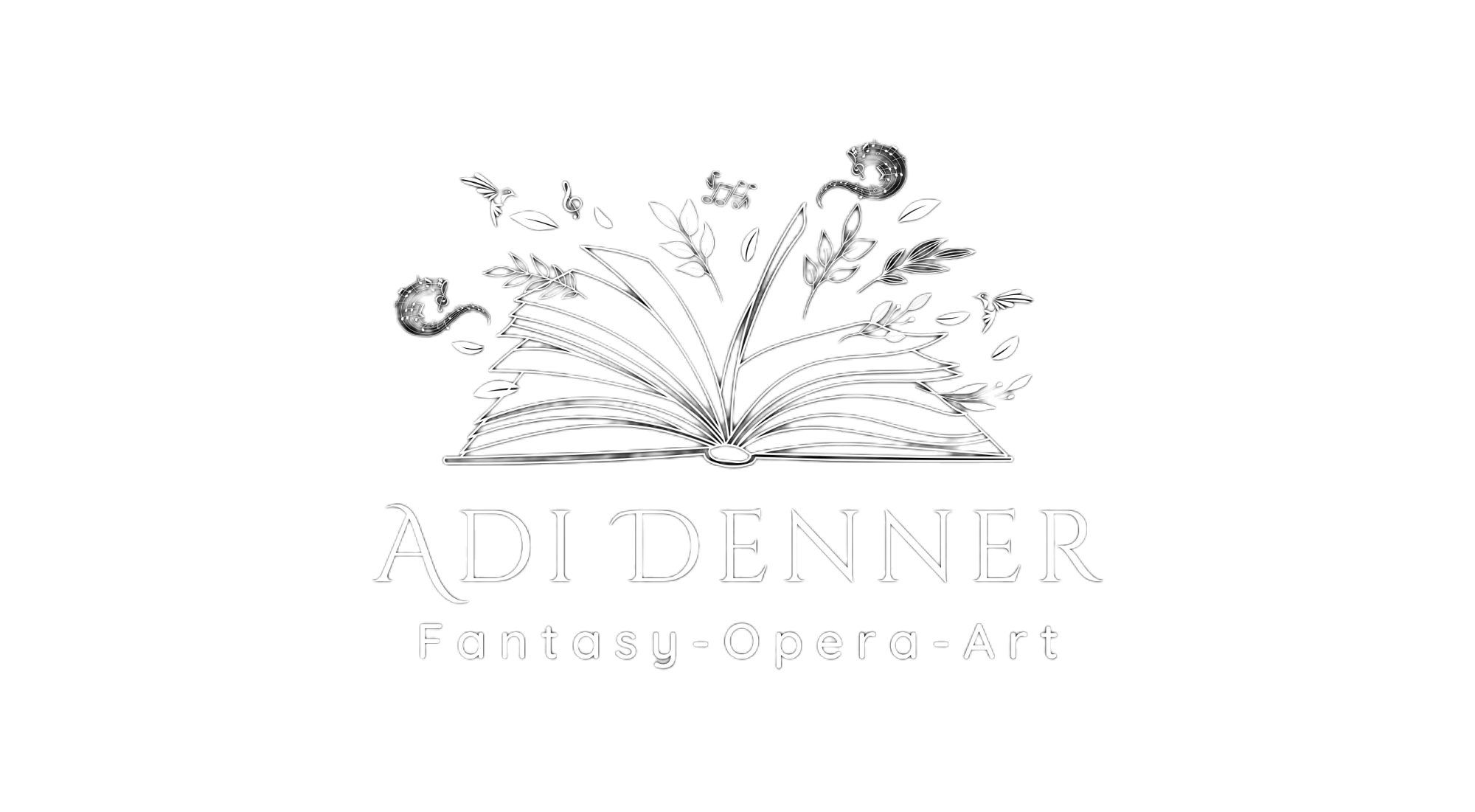So why did it work: a breakdown
Hook and Metadata
The high-stakes opera scene of an alternate 19th century France takes center stage in THE KISS OF THE NIGHTINGALE; a 109,000 words fantasy with crossover potential. Featuring a bisexual lead and strong queer representation, this Opera Magic novel combines the aesthetic of The Phantom of the Opera with swoon-worthy romance and a tempting underworld. Perfect for fans of Enchantée by Gita Trelease, The Kingdom of Back by Marie Lu, and A Dress for the Wicked by Autumn Kraus.
Start with story, not formality
Most query letters open with a line like "I'm seeking representation for my 109,000-word fantasy novel..." But agents read hundreds of queries a month—and that kind of opening is easy to skim or skip. Instead, I started with a hook that immediately paints a picture and sets a mood:
The high-stakes opera scene of an alternate 19th century France takes center stage in THE KISS OF THE NIGHTINGALE...
This isn't just a setting—it's a vibe. The phrase "high-stakes opera scene" promises drama. "Alternate 19th century France" tells you it's historical fantasy with a twist. You don’t need to wonder where you are, what kind of story this is, or if it’s your kind of book. You know right away.
That’s the goal of a strong query opener:
I still include the key info—word count, genre, comp titles—but I turn them into an integral part of the premise.
If you want to stand out in a slush pile, don’t ask for attention. Earn it from the very first word.
Worldbuilding Tease
Talents are not honed skills—they are abilities trapped in sparkling jewels and passed down through generations by blood magic.
This is optional!
I chose to open the plot paragraphs with a compelling worldbuilding hook. One sharp, vivid line tells you this is a unique magic system, and it sets the tone for the rest of the letter. No info-dumping—just a clean, vivid hook.
Main Character and Stakes - Your First Plot Paragraph
Cleodora dreamt of inheriting her father’s Tailoring gift. Instead, his sudden death left her Talentless—ostracized. Barely keeping her family’s dress-shop afloat and desperate to help her ill sister, Cleo strikes a deal with the alluring Dahlia, the leader of the Illicit Market: Gain a life of luxury and health by taking on a stolen Singing Talent to become the new opera diva, in exchange for cozying up to the social elites and stealing their unique abilities.
Lead with emotion, not just events
This is the paragraph where a lot of queries fall apart — not because writers don’t have good plots, but because they try to summarize the story instead of selling the emotional arc.
I don’t start with worldbuilding or elaborate magic systems. I start with Cleodora’s emotional reality:
Cleodora dreamt of inheriting her father’s Tailoring gift. Instead, his sudden death left her Talentless—ostracized.
That’s not just a plot fact — that’s personal loss, grief, and rejection. From the very first line, you feel where Cleo is emotionally: disappointed, isolated, and trapped. She had a dream, it died with her father. That’s the before.
Then I introduce the inciting incident—the moment that shakes up her status quo:
...Cleo strikes a deal with the alluring Dahlia... to become the new opera diva... in exchange for stealing Talents.
Now we see the contrast: she goes from barely surviving to performing on stage in a luxurious world of art, power, and deception. But it’s not just plot—it’s temptation. The paragraph lays out the core emotional question of the book: How far will she go to escape powerlessness, and at what cost?
And yes, this also delivers:
High-concept fantasy elements (Talents as magic, stolen abilities)
Intrigue (the Illicit Market)
Personal stakes (her sick sister)
Moral tension (she’s trading her integrity for survival)
But it only works because it’s grounded in Cleo’s emotional lens. You’re not pitching a plot—you’re pitching a journey.
Rising Conflict - Your Second Plot Paragraph
Trading poverty with gala concerts and opulent balls, Cleo flourishes even under the rivalry of jealous sopranos and intimidating conductors. Soon Dahlia picks her first target—an arrogant vicomte who’s a patron of the opera. Cleo is eager to obey, but from her first meeting with the vicomte, their mutual animosity is clear. Through the summer social events and the rehearsals at the opera house, Cleo attempts to get closer to the vicomte, only to find that he’s not the pretentious man she thought him to be.
Rising conflict, not rising clutter
This second plot paragraph is where writers often derail their query by introducing too much: side characters, subplots, twists, timelines. But that’s not what a query needs. What this paragraph does right is advance the story while deepening the emotional arc.
Let’s look at how:
Trading poverty with gala concerts and opulent balls...
We open with the payoff from the inciting incident—her life has changed. There’s glamour now. Success. But it’s not just set dressing—it contrasts with her old life and highlights what she stands to lose if things go wrong.
Soon Dahlia picks her first target—an arrogant vicomte...
We’re moving forward in the plot, but the focus stays tight. One new character is introduced, and he matters: he’s central to Cleo’s emotional and moral journey. This keeps the narrative clean and the stakes focused.
Their mutual animosity is clear... not the pretentious man she thought him to be.
Now we see growth. Cleo’s emotional perception is shifting. Her assumptions are being challenged. This isn't just a love interest—this is conflict and change. And that’s the point: it’s not about romance as a trope, it’s about what the romance does to the character.
The tone is also doing quiet work here—there’s tension, banter, and a slow burn that hints at a larger dynamic to come. But we don’t get bogged down in opera politics, other patrons, or side dramas. Everything here serves one purpose: showing Cleo moving deeper into this beautiful, dangerous new world and facing complications to her mission and her heart.
Key takeaway:
In your second plot paragraph, don’t try to show everything that happens. Instead, show how the stakes are evolving, how your protagonist is being tested, and how her worldview is beginning to crack.
Stakes - Your Third Plot Paragraph
Trading poverty with gala concerts and opulent balls, Cleo flourishes even under the rivalry of jealous sopranos and intimidating conductors. Soon Dahlia picks her first target—an arrogant vicomte who’s a patron of the opera. Cleo is eager to obey, but from her first meeting with the vicomte, their mutual animosity is clear. Through the summer social events and the rehearsals at the opera house, Cleo attempts to get closer to the vicomte, only to find that he’s not the pretentious man she thought him to be.
Go Deep, Not Big
Here’s where everything in your query should come to a head—not with explosions, but with emotion. Too many writers try to end their query by ramping up the plot: a war is coming, a rebellion is brewing, the world is in danger. But here’s the truth:
Agents don’t care about saving the world—unless they care about the person trying to save it.
In this final paragraph, I don’t try to impress with scope. I go inward. I show Cleo’s emotional crossroads:
With the vicomte’s teasing smiles growing on her and Dahlia’s seductive whispers lingering in her ears, Cleo is torn. Giving in to her emotions for the vicomte could prevent her from stealing his Talent, yet defying Dahlia will mean losing more than her tender kisses and a dazzling new singing career—her sister’s fate is at stake.
It’s intimate. Personal. Tangible. It’s not about whether the opera house burns down—it’s about whether Cleo can live with what she has to do to survive.
And then, I end with the real stakes:
A life of glamour and deceit or hardship and integrity: The choice must be made before the curtain opens.
That’s not just a summary of the plot—it’s a distillation of the book’s emotional and thematic core. It turns a fantastical premise into a human story: love vs. loyalty, survival vs. selfhood. And it brings us full circle to the opening image—the opera, the performance, the hidden truth beneath the spotlight.
The most powerful stakes in your query aren’t about magic or kingdoms or revolutions (Though that doesn’t mean you don’t need to mention those at all!). They’re about what your character stands to lose—emotionally, morally, personally—if they fail.
Because at the end of the day, that’s why we care.



